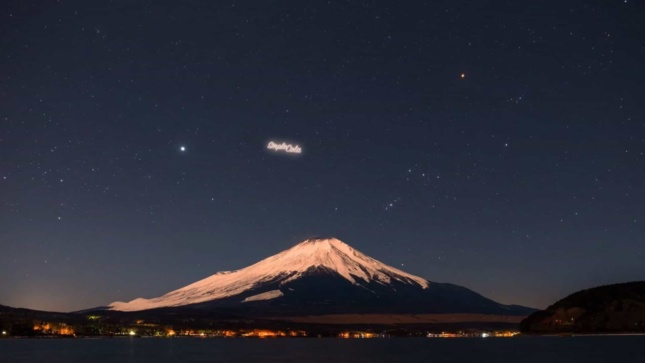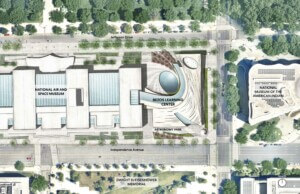Soft drink giant PepsiCo has shot down reports that it plans to advertise in low Earth orbit (LEO), after reports surfaced last week in Futurism that the company was working on a “space billboard.” Using a small fleet of satellites armed with reflective mylar sails, the company was reportedly going to advertise a new drink called Adrenaline Rush, targeted to a “stereotyped” minority—gamers.
Enter Russian company StartRocket, which has proposed using CubeSats—satellites that measure 4-inches-by-4-inches-by-4-inches—to create orbital billboards that would be visible all over the planet. The tiny satellites would be ferried into LEO via a rocket, and their solar panels and large mylar sails would unfold after the satellites were ejected from the main vessel. The CubeSats would then arrange themselves to form an image or message, and the “billboard” would be visible at dawn or dusk as they reflected sunlight.
Although costs have been dropping and the same basic principles that StartRocket wants to build off of have been used for artistic purposes, no form of space-based advertising has ever been successfully deployed before. If the company can make its CubeSat system work, its floating advertisements would circle the Earth from approximately 250-to-310 miles away and would have a viewable surface area of about 19 square miles.

On April 13, it seemed that Pepsi was going to be the first soda in space. A Russian PepsiCo spokesperson, Olga Mangova, told Futurism that the company had partnered with StartRocket and was working to create the advertising campaign of the future.
Then, Pepsico made an abrupt about-face.
“We can confirm StartRocket performed an exploratory test for stratosphere advertisements using the Adrenaline GameChangers logo,” a PepsiCo spokesperson told SpaceNews. “This was a one-time event; we have no further plans to test or commercially use this technology at this time.”
However, as Futurism points out, this was likely an attempt by PepisCo to deflect criticism after the company came under heavy fire on social media over the proposal. A PepsiCo spokesperson “clarified” that there had been a translation error between the media and the company’s Russian employees, and that they had been referring to a high-altitude balloon test earlier in April, not a future campaign. That wouldn’t make sense, as Futurism had originally queried them over their future plans, and Mangova confirmed that they would be using an “orbital billboard”—distinctly different from a balloon. StartRocket were similarly unable to provide updated information on any ongoing, or past, PepsiCo collaborations.
While no laws prohibit advertising in space in such a way that would be visible from Earth, it’s likely any real attempt to create an unavoidable billboard in the night sky would be met with pushback. Still, if it becomes cheap enough, the night sky could one day become home to airborne advertisements (but asteroid-anchored condo towers remain unlikely).











